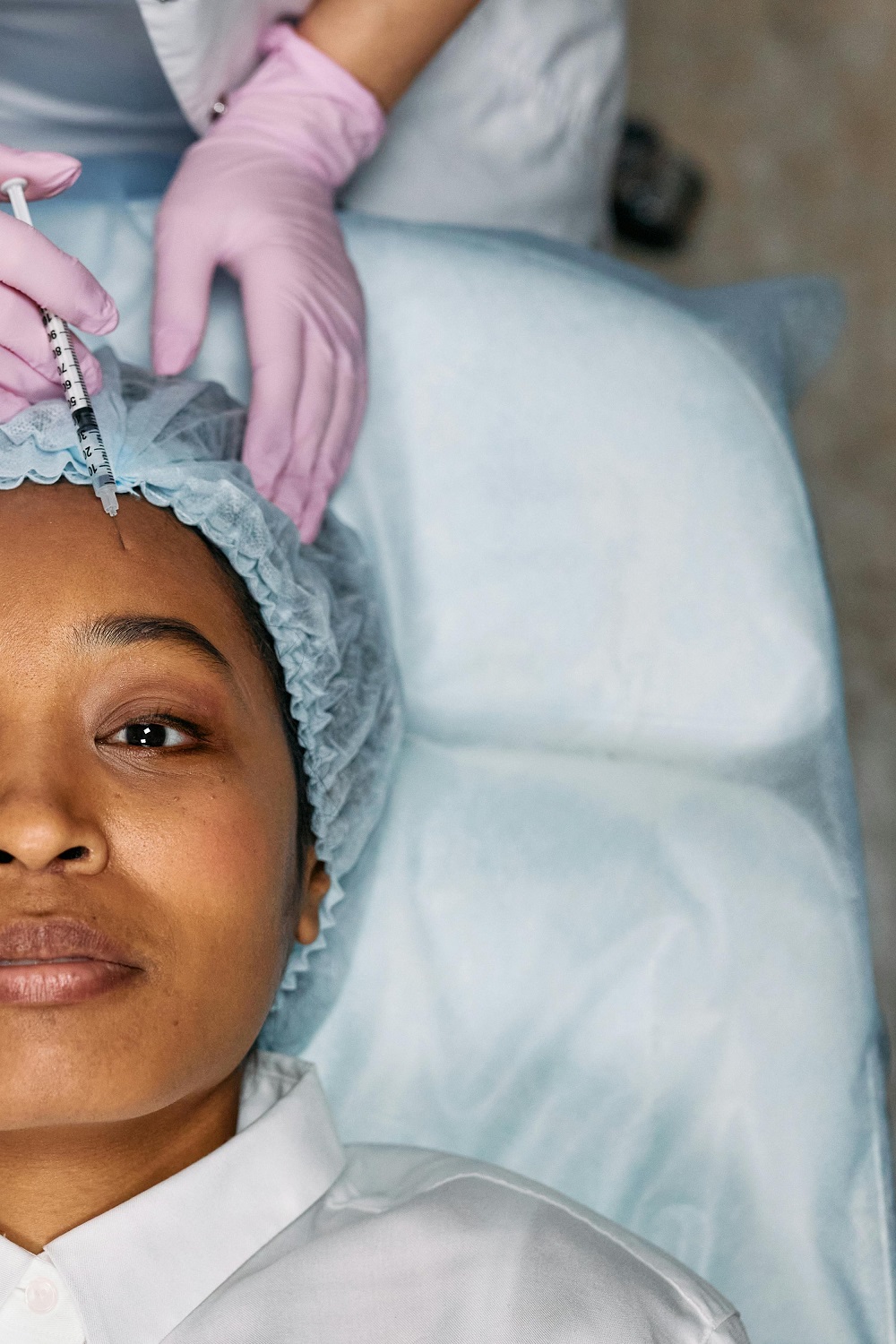Botox, a name synonymous with wrinkle reduction, has become a popular choice for individuals seeking to enhance their appearance. However, before embarking on your first Botox journey, it’s crucial to understand what it is, how it works, and what to expect during and after treatment. This article guides first-time Botox patients, equipping them with the knowledge and tools to make informed decisions about this cosmetic procedure.
Understanding Botox: From Science to Aesthetics
Botox, short for botulinum toxin, is a neurotoxin produced by the bacterium Clostridium botulinum. When injected in small, controlled doses, it temporarily blocks the release of acetylcholine, a neurotransmitter responsible for muscle contraction. This temporary blockage leads to muscle relaxation, smoothing wrinkles and fine lines on the face.
Beyond its cosmetic applications, Botox has gained significant recognition for its therapeutic benefits in treating various medical conditions. These include chronic migraines, muscle spasms associated with neurological conditions like cervical dystonia, excessive sweating (hyperhidrosis), and even overactive bladder syndrome.
The Procedure: A Quick and Minimally Invasive Experience
Botox injections are typically performed by dermatologists, plastic surgeons, or other qualified healthcare professionals. The procedure itself is relatively quick and minimally invasive. Here’s what you can expect:
- Consultation: Before the injection, a consultation is crucial to discuss your desired results, medical history, and any potential concerns. The practitioner will assess your facial anatomy and determine the appropriate injection sites and dosage.
- Injection: Botox is injected into specific facial muscles using very fine needles. The process is usually quick and well-tolerated, with some individuals opting for a topical anesthetic cream for added comfort.
- Recovery: Botox injections involve minimal downtime. You can resume most daily activities immediately after the procedure. However, to ensure optimal results, avoid rubbing the treated areas, strenuous exercise, and lying down for a few hours.
What to Expect After Treatment: Results and Side Effects
The full effects of Botox typically become noticeable within a few days, with the peak results observed within 1-2 weeks. Depending on individual factors like muscle activity and metabolism, these results can last anywhere from 3-6 months.
While Botox is generally considered safe when administered by a qualified professional, some potential side effects may occur, including:
- Temporary bruising or redness at the injection site.
- Headaches in rare cases.
- Mild drooping of the eyelid, which usually resolves within a few weeks.
It’s crucial to disclose any pre-existing medical conditions, medications, or allergies you may have during the consultation to ensure the safe and effective administration of Botox.
Avoiding Common Pitfalls: Choosing the Right Practitioner
- Selecting a qualified and experienced practitioner is paramount for a safe and successful Botox experience. Here are some key factors to consider:
- Board Certification: Choose a practitioner who is board-certified in their respective field, such as dermatology or plastic surgery.
- Experience: Opt for a practitioner with extensive experience in administering Botox injections.
- Reputation: Research the practitioner’s reputation through online reviews or referrals from trusted sources.
- Consultation: During the consultation, assess the practitioner’s communication style, ability to address your concerns, and overall professionalism.
Realistic Expectations and Informed Decisions
Botox is a powerful tool, but it’s important to have realistic expectations about its capabilities. It can effectively smooth wrinkles and fine lines but won’t erase deep wrinkles or significantly alter facial features. Open communication with your practitioner is crucial to ensure your desired results align with the potential outcomes of Botox treatment.
Advanced Considerations for Botox Treatment
While this guide equips you with the foundational knowledge of Botox, there are additional considerations for first-time patients seeking a more comprehensive understanding:
Cost and Insurance Coverage
Botox is typically not covered by insurance for cosmetic applications. The cost of treatment can vary depending on the geographical location, the practitioner’s experience, and the number of units required to achieve desired results.
Alternatives to Botox
Several other injectable fillers and non-surgical procedures can achieve similar results to Botox. Consulting your practitioner about alternative options can help you make an informed choice based on your specific needs and budget.
Maintenance and Long-Term Considerations
Botox is not a permanent solution. Regular touch-up injections, typically every 3-6 months, are necessary to maintain the results. Discuss a long-term plan with your practitioner to ensure continued satisfaction.
Ethical Considerations
Botox is a powerful tool, and its use should be approached ethically. Avoid chasing unrealistic beauty standards and focus on subtle enhancements that complement your natural features.
Embracing a Holistic Approach to Aesthetics
Botox can be a valuable tool in your aesthetic journey. However, it’s important to remember that true beauty goes beyond the surface. Consider incorporating healthy lifestyle practices like maintaining a well-balanced diet, regular exercise, and adequate sleep to promote overall well-being and enhance your natural radiance.
A Final Note: Empowering You on Your Aesthetic Journey
Knowledge is power. By educating yourself about Botox, you are taking control of your aesthetic choices. Remember, the decision to undergo Botox treatment is a personal one. This guide empowers you to make informed decisions that align with your goals and expectations. Don’t hesitate to ask questions and express your concerns to your chosen practitioner. With a foundation of knowledge and a collaborative approach, you can embark on a safe and successful journey towards achieving your desired aesthetic results.
